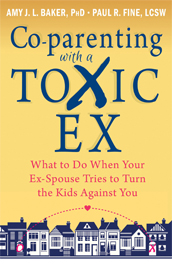Distributing Damages in a Divorce After Brain Injury

This blog contains affiliate links, which we may receive a commission for purchases. The decision is yours, whether or not you decide to buy.
The breakup of a family is always a difficult time, and even more so when one of the family members has suffered a brain injury. Damages awarded as a result of this injury can sometimes be distributed during a divorce as a matrimonial asset, and it’s important for anyone involved in a family where damages are an issue to understand how the courts will handle this, in the event of a divorce.
How are damages distributed?
The starting point for the Court is a 50:50 split of all assets. The Court will take into account a range of issues when determining a settlement and what is fair and these include, but are not limited to, housing needs, income needs, contributions, any disabilities and earning capacity.
However, the Court is unlikely to approve a distribution of assets which compromises the care requirements of an individual, whether that be the upbringing of a child or on-going medical treatment for a brain injury, and any assets that are deemed necessary to maintain an injured individual’s quality of life will wherever possible be protected from distribution provided there is sufficient in the ‘pot’ to also meet the needs of the other party.
This is especially the case with children who have sustained brain injuries, where the courts will want to ensure that a child’s damage settlement is sufficient to provide on-going medical treatment and therapy. Where children have sustained brain injuries and received damages, this is usually held in a trust fund for the benefit of that child.
In divorce cases where this exists, issues can be raised as to who the trustees should be and, in certain circumstances, a parent as principal carer may receive funds to meet a child’s care or housing needs, paid from this trust.
This doesn’t necessarily mean that a damage settlement is entirely ring-fenced, for example, compensation for “loss of earnings” is treated in the same way that the earnings themselves would be, which typically means they’re a matrimonial asset which is distributable.
This is also the case where damages have been invested in a joint asset (such as in modifications to the family home), or where compensation has been made for gratuitous care (which is paid to the spouse for the time they spend caring for the injured party).
Though there are no concrete rules and different courts may reach different conclusions, the elements of a settlement which are not strictly required for medical reasons may potentially be available for distribution during a divorce and the damages are an “available resource”.
Can damages be protected with a nuptial agreement?
Until reform by Parliament takes place, pre and post-nuptial agreements are not legally binding. However, the existence of a nuptial agreement is a relevant factor which the Court will take into consideration when reaching a fair assessment and, in certain cases, significant weight will be given to the terms.
The courts will adhere to the principle of meeting an individual’s on-going needs, rather than just securing their settlement. An open-ended nuptial agreement is less likely to find favour, but one which outlines specific requirements and is backed by evidence stands a much greater chance of being upheld.
Given the sensitive nature of settlements for brain damages, it’s very important that both spouses understand how settlements can be treated as an asset in a divorce, and what each party may be entitled to.
Malcolm Underhill is a brain injury claims specialist for IBB Claims. Find them on Facebook and follow @IBB_Claims on Twitter.
You may also like
Parenting books
Buy now from Amazon
Podcast
If you’re looking for some straight-up, positive advice on topics that affect your daily life, then check out The Sue Atkins Parenting Show. Each week Sue bare will discuss every possible aspect of your parenting challenges, from weaning to whining, boundaries round technology to stroppy teens. You’ll get practical tips, techniques and advice that really work- and it’s all totally free.
Articles
- 5 Ways To Parent With A Narcissist
- How To Be Great Parents Through Separation And Beyond
- Divorce From A Child's Perspective
Videos
Practical advice and tips from professionals on what to do with issues and challenges around divorce from parenting to finance.
Events
Practical tips & advice designed to help people going through divorce, whether online or in person.
Useful links
Here's a selection of organistaioins from parenting to finance to help you with your divorce.
Legal professionals
Related Posts
-

Divorce And Friendships: Navigating Shared Social Circles
-

Managing Divorce Post-Christmas: Unveiling The January Surge In Separations
-

Thriving Through The Holidays: A Guide To Resilience And Self-Discovery After Christmas, Separation, And Divorce
-

5 Rights Of A Child After Divorce
-

Six Ways A Divorce Coach Can Transform Your Divorce Journey

.jpg)

.jpg)



.jpg)

